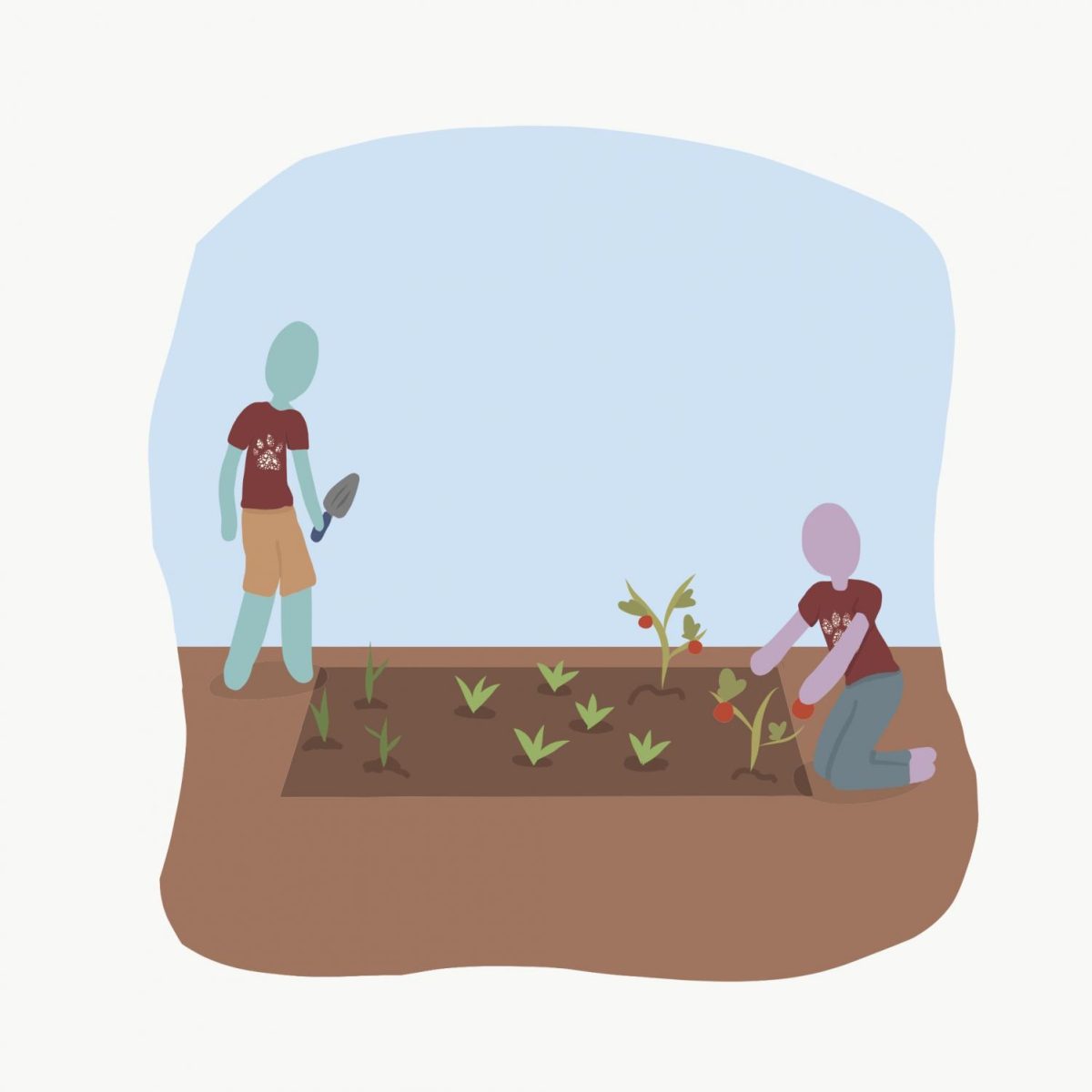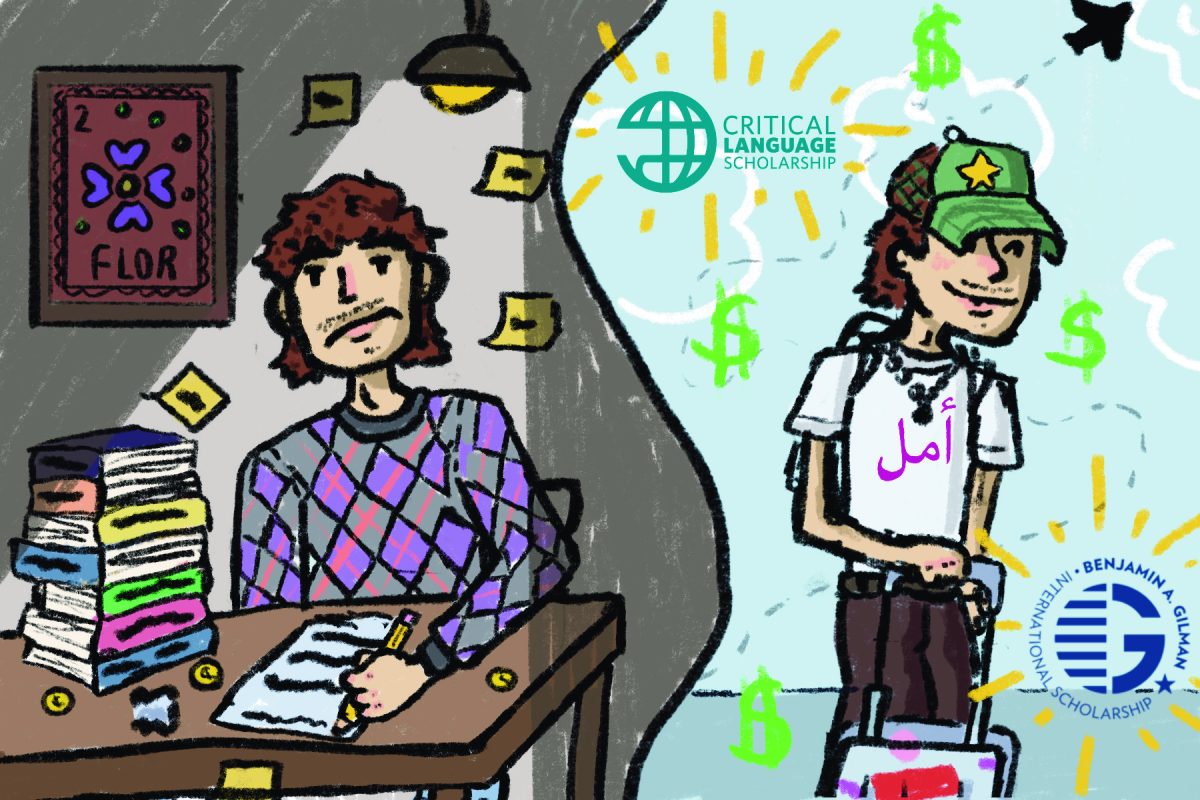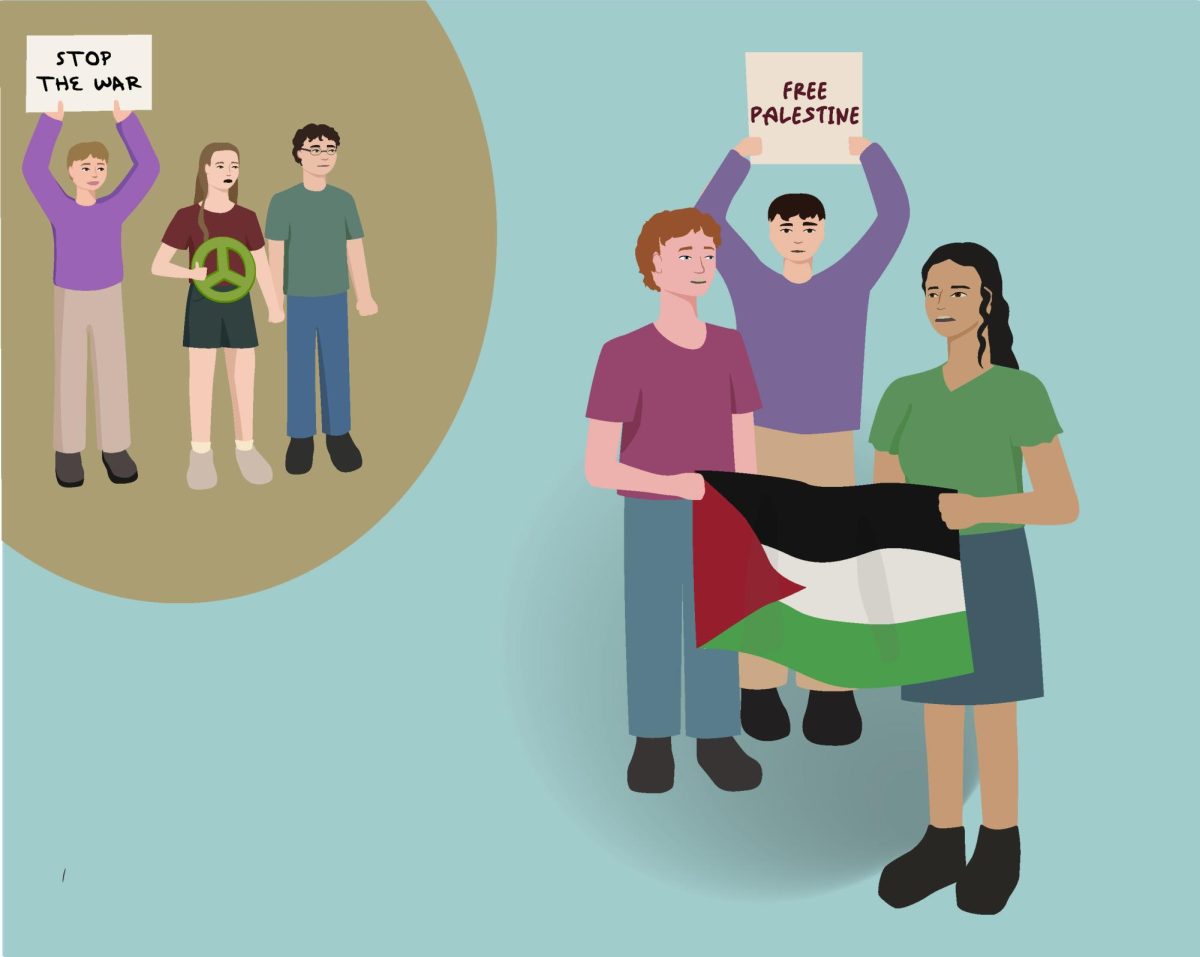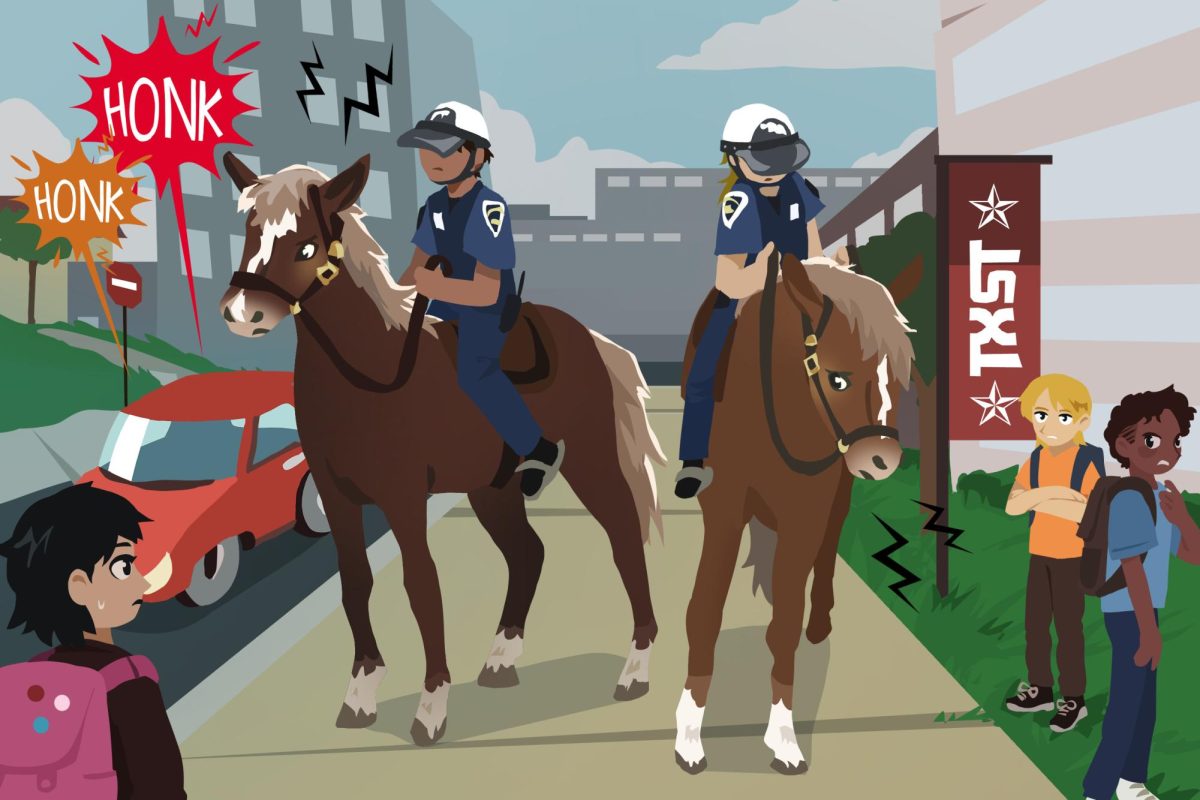Bobcat Bounty, the student-run food pantry at Texas State, has provided distribution services to the San Marcos community throughout the COVID-19 pandemic. To assist Bobcat Bounty workers and their efforts toward providing healthy food, the university’s Agriculture Department should grow a vegetable garden.
Bobcat Bounty was created to decrease food insecurity on campus; the majority of its food comes from its partnership with Hays County Food Bank. But with a vegetable garden, Bobcat Bounty would be able to provide even more to those that are in need.
Texas State students have mandatory fees incorporated into their student tuition bill, one of which is a $1 fee per semester that pays for environmental projects and initiatives. In fall 2019, there were 38,321 students who paid the fee, meaning the university received a total of $38,321 to fund environmental projects.
While additional renovations, parking lots, labs, offices and other facilities are important, it is just as crucial that the university gives back to its student in need of healthy foods. The funding exists; the Agriculture Department just needs to submit a grant application in order to request it.
Space and participants would not be a problem for a project like this. Texas State has both greenhouses as well as several established garden spaces. All that would be needed is people to care for the garden, which can be found anywhere on campus.
Much like the community garden in San Marcos, between St. Johns Catholic Church and the train tracks on Hopkins, volunteers would be able to care for the vegetables grown. This could be anyone from the school of Family and Consumer Sciences (FCS), Residential Assistants (RAs), dorm residents, other students and faculty.
Donations from the garden would also increase the number of fresh vegetables Bobcat Bounty distributes, leaving more food for latecomers. Most of the time, students are faced with the harsh reality of paying for school, housing, textbooks and other financial burdens. Students working 2-3 jobs to survive may not have enough time to get food within the hours of distribution.
With an additional food resource, students would worry much less about showing up late or having to wait until the next distribution period.
Research shows that community gardens improve access to food and nutrition, increase physical activity and improve mental health. With proper care, planning and attention, the same can be done with a vegetable garden.
It is important to enhance the environment we live in rather than refurbishing it with bulldozers and concrete. While not everyone can be a famous teenage climate activist like Greta Thunberg, people can insight change in smaller ways to positively impact their surrounding community.
According to a survey conducted by the Future of Humanity, people ages 18-25 think that global warming is the most important issue facing the world. Fortunately, gardening can aid in mitigating climate change.
If people placed more of their time toward planting trees, the trees would be able to absorb and store as much as one ton of carbon pollution (CO2) from the atmosphere. Thus, as more greenery is planted, the impact of reducing our carbon footprint becomes more significant.
So not only would having a vegetable garden help the planet, but it would also benefit those struggling with food insecurity and give a hands-on learning experience to students looking to learn how to plant and grow vegetables.
Together, the university can make a difference, even if it is just a small one.
The Texas State Agriculture Department is well-equipped with all the resources; they just need to act. A vegetable garden is an opportunity to provide fresher produce to students facing food insecurity while bringing the Texas State community together.
-Amira Van Leeuwen is a journalism sophomore
Opinion: Texas State’s Agriculture Department should grow a vegetable garden
June 3, 2020
Donate to The University Star
Your donation will support the student journalists of Texas State University. Your contribution will allow us to purchase equipment and cover our annual website hosting costs.

























